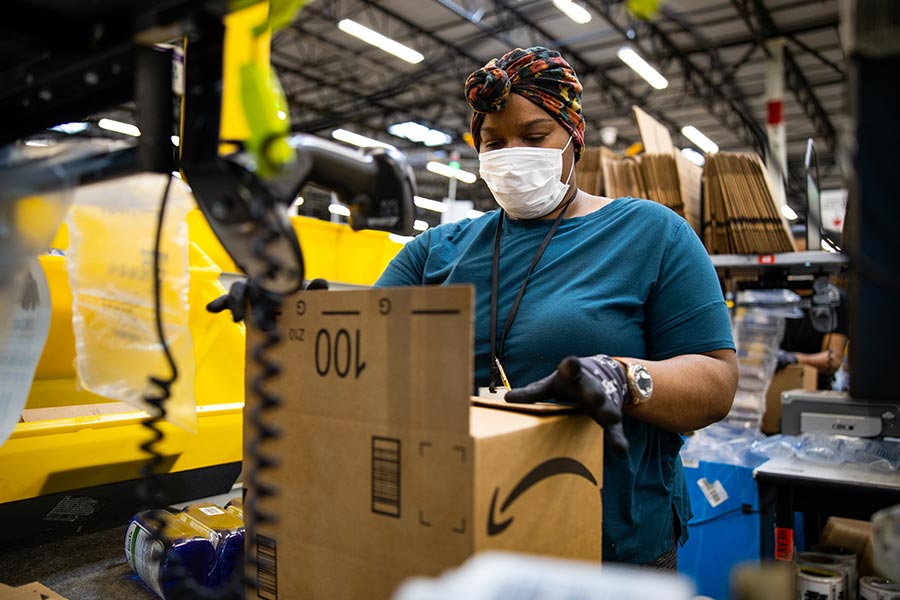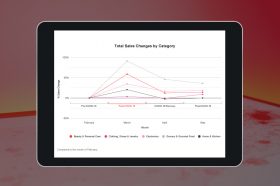Resources - Blog
Amazon Sets New Storage Limits Ahead of Q4, COVID-19 Demand

Stay on top of the latest e-commerce and marketplace trends.
Amazon is getting an early start on planning for its Q4 holiday shopping demand. With Prime Day anticipated to take place in October, coupled with Black Friday and Cyber Week, the holiday season this year will be busier than ever — so planning ahead is a must to avoid potential pitfalls during the busiest time of year.
As part of its strategy to stay a few steps ahead, Amazon is ramping up its fulfillment capacity with 33 new U.S. fulfillment centers, which will expand its total storage capacity by about 35 million cubic feet. The company also announced this week that it is implementing new storage limits for merchants.
In an email sent to sellers, Amazon said it is preparing early for the holiday season to meet the sustained increase in consumer demand, and that it has reduced its own retail product ordering to accommodate more products for its brand and retail merchants.
The letter outlined all the storage changes that are being implemented to prepare for the months ahead leading into the peak period, which we break down below.
IPI Threshold Increase
It is essential to practice smart inventory management year-round, as you never want to run out of stock, especially during high-demand periods. In addition to a loss of sales, poor inventory management can also result in storage restrictions, impact your seller account health, and affect your Inventory Performance Index (IPI).
Your IPI score is based on excess inventory, sell-through inventory, stranded inventory, and in-stock inventory. This metric is updated weekly, based on the past three months of sales benchmarked against inventory levels.
An IPI score of 550 or higher is excellent, while a score below 450 means that actions must be taken to improve before Amazon places limits on your storage capacity. With Amazon’s recent announcement, the company has increased the minimum IPI threshold to 500 from 350, effective Aug. 16, 2020, through the end of the year. That means if your IPI is below 500, your inventory will be subject to storage limits.
You can monitor your IPI in your Inventory Performance Dashboard and take the recommended actions needed to raise your score by improving sell-through or reducing your excess and stranded inventory.
ASIN Quantity Limits
Amazon is also placing limits on the number of units per ASIN that can be placed in FBA storage during the high-demand selling phase in order to maximize the selection available to customers during the peak period.
You will be able to stock enough inventory to cover three months of sales and can review your quantity limits for each product on your Restock Inventory page as well as in your Restock report. Amazon said it will continually review this and make adjustments when possible to allow more space for your products.
Free Removals
Storage fees and removal fees have always been a question of which is the lesser evil when deciding what to do about slow-moving inventory. Luckily, Amazon just made the decision-making process a whole lot easier by announcing a free removals promotion.
This adjustment will help merchants avoid steep storage fees without having to pay for removals from FBA warehouses. Amazon said that the free removal promotion is only available for a limited time, but did not specify when it would expire. The company stated it will waive fees for any removal order submitted for inventory in their fulfillment centers, effective immediately.
To create a removal order, you can go to your Inventory Age page and choose “Create removal order” from the menu next to each FBA item in your inventory.
Final Thoughts
While Amazon has mostly recovered from the operational issues it faced in March and April this year during COVID-19, it is no surprise that the company is planning ahead to avoid potential problems that could interfere with its successful holiday sales. These adjustments are also beneficial to sellers, as it forces you to plan ahead with your inventory management and take actions that will benefit your business.
Learn what Feedvisor can do for your business.
When you partner with Feedvisor, you automatically receive access to our true, AI-driven technology and hands-on team of e-commerce experts. Contact one of our team members today to learn more about our end-to-end solution for brands and large sellers on Amazon, Walmart, and e-marketplaces.




